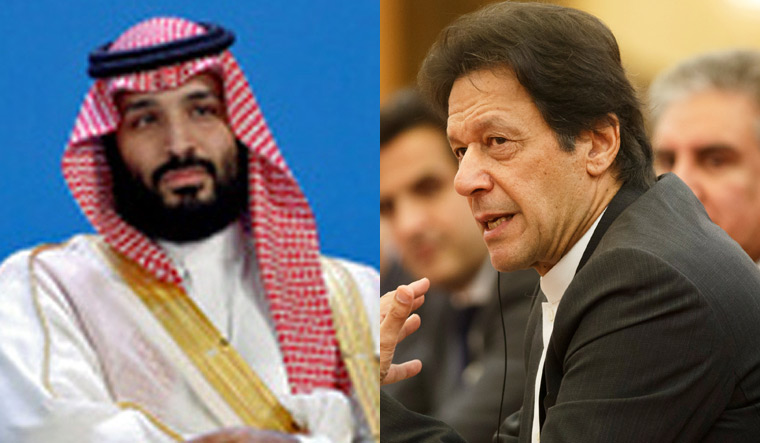Saudi is preparing a record investment package for Pakistan. It is likely to provide welcome relief for the cash-strapped country. It may also change the regional geo-political scenario. At the heart of the investment is a reported USD 10 billion refinery and oil complex in the strategic Gwadar Port on the Arabian Sea, the ultimate destination for the massive multi-billion dollar China Pakistan Economic Corridor, which lies not far from the Indo-Iranian port of Chabahar.
The Crown Prince of Saudi, Mohammed bin Salman plans to visit Pakistan shortly, which will result in the investment deals being signed.
Riyadh and Islamabad, decades-old allies, have been involved for months in talks to hammer out details of the deals in time for the high-profile visit.
also read
- Why did Turkish Airforce C-130 Hercules transport plane land in Karachi? Ankara responds to rumours
- 'Didn't say war would erupt in 3 days': How Pakistan Defence Minister Khawaja Asif walked back on 'attack imminent' remark
- BJP attacks 'divided' Congress over contrasting statements on Pahalgam terrorist attack
"The outcome of the talks so far has been very positive and this is going to be one of the biggest-ever Saudi investments in Pakistan," a Pakistani senior finance ministry said.
"We hope that an agreement to this effect will be signed during the upcoming visit of the Saudi crown prince to Pakistan," said the official, requesting anonymity.
Last month, two of Islamabad's biggest trading partner, Saudi Arabia and UAE have offered Pakistani Prime Minister Imran Khan some USD 30 billion in investment and loans.
Riyadh investments are expected to provide a lifeline for Pakistan's slumping economy which was downgraded in early February by S&P ratings agency from a B to a B-, Saudi economist Fadhl al-Bouenain said.
Mutually beneficial strategic and commercial goals will be achieved with investments in infrastructure and refinery projects, he said.
Saudi Arabia and its Gulf partner, the UAE, have already deposited USD 3 billion each in Pakistan's central bank to help resolve a balance of payments crisis and shore up its declining rupee.
Close to USD 6 billion have also been deferred by both the countries in oil imports payments as Islamabad has so far failed to secure fresh loans from the International Monetary Fund.
Khan has already visited Riyadh twice since taking office in July and in October attended a prestigious investment conference widely boycotted by other political and economic figures after the murder of journalist Jamal Khashoggi.
He has also visited Qatar, Turkey and China seeking investments.
Saudi Energy Minister Khalid al-Falih visited Gwadar in January and inspected the site for the proposed oil refinery at the deep sea port, just 70 kilometres away from its Iranian competitor, Chabahar. He said that the kingdom was studying plans to construct a USD 10 billion refinery and petrochemicals complex in Gwadar.
The world's top crude exporter, in order to secure long-time oil buyers has been investing heavily in refinery and petrochemicals projects across the globe.
A pipeline, being developed as part of China's Belt and Road initivative from Gwadar to China would cut the supply time from the current 40 days to just seven, experts say.
The project has in investments worth some USD 60 billion, Gwadar is being billed as a regional industrial hub of the future, easily accessible for Central Asia, Afghanistan, the Middle East and Africa.
"Pakistan needs a rich partner to enter as a third party besides China, capable of injecting needed cash," Bouenain said.
But so far China has rejected other partners for the corridor that seeks to connect its western province Xinjiang with Gwadar, including Saudi Arabia and UAE, said James M. Dorsey, a senior fellow at Singapore's S. Rajaratnam School of International Studies.
Any Saudi investment in Gwadar will change dynamics in current regional politics.
Iran late last year inaugurated Chabahar which provides a key supply route to landlocked Afghanistan and allows India to bypass its historic enemy Pakistan.
Chabahar has been seen as a key way both to send supplies to Afghanistan and to step up trade with Central Asia as well as Africa.
Riyadh however, is not expected to get involved in any Indo-Pakistani rivalry and the kingdom also has major strategic energy deals with New Delhi, where demand for oil is growing fast.
Indeed in April, the Saudis signed a USD 44 billion deal to build a huge refinery and petrochemicals complex in western India.










